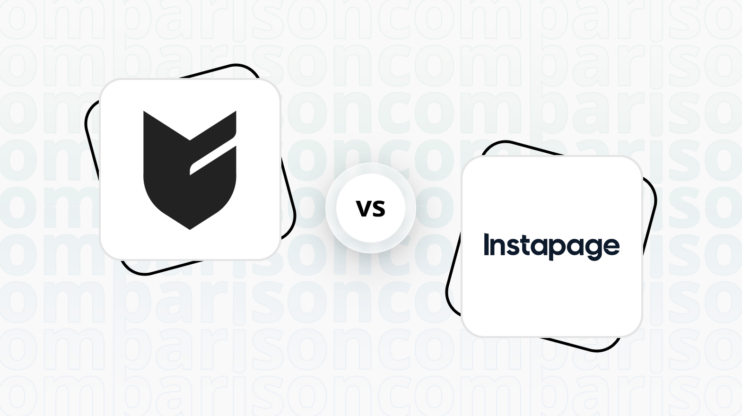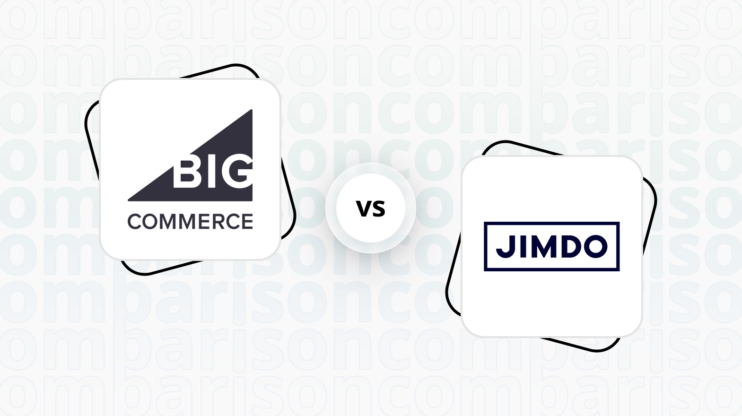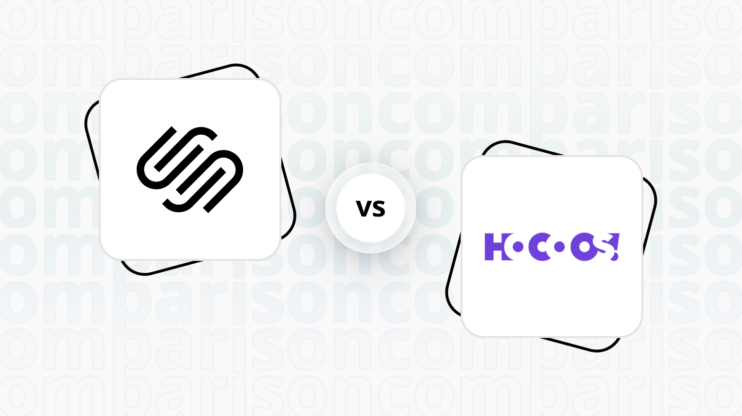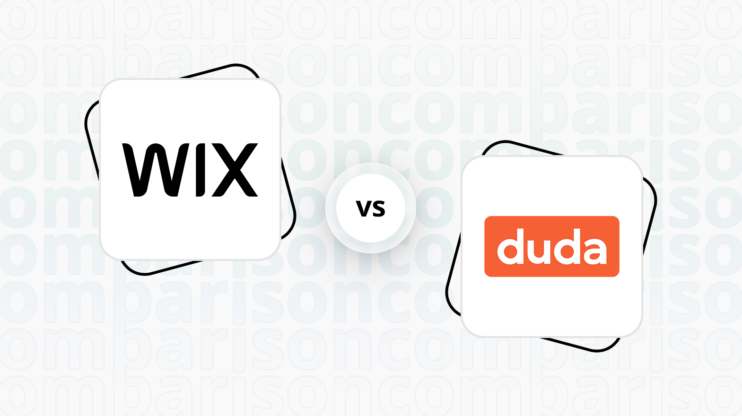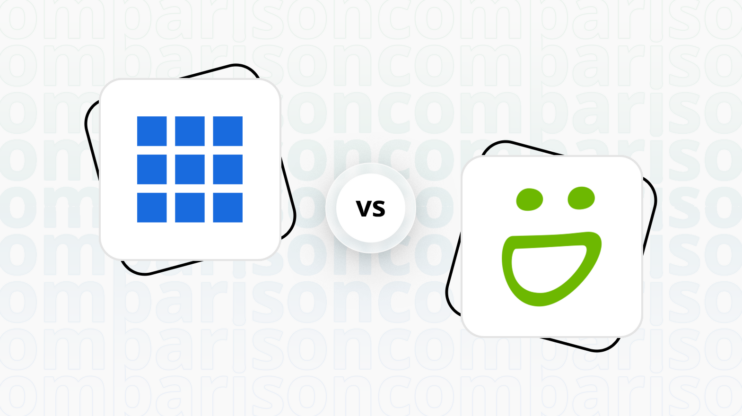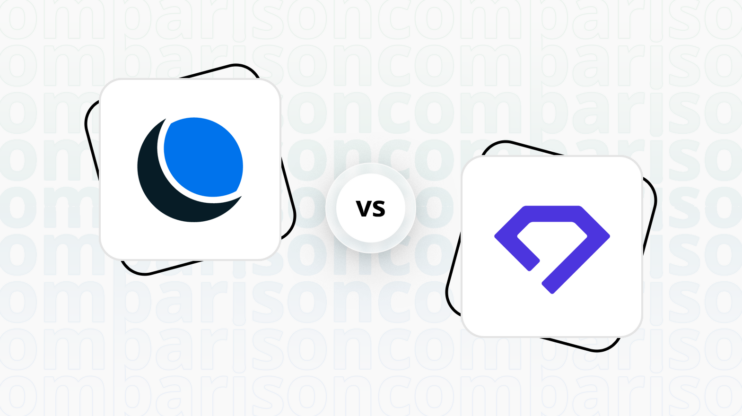Final verdict
Weebly and Webnode both offer user-friendly website building experiences, but they cater to slightly different needs and preferences.
-
Weebly (Overall Grade: 7.3/10)
is a versatile website builder with a drag-and-drop interface, making it accessible for both beginners and experienced users. It excels in ease of use, design functionalities, and customer support. Weebly’s ecommerce features are robust, offering unlimited product listings and secure checkout options. It also provides comprehensive hosting services and strong security measures, making it a reliable choice for small businesses and personal websites. -
Webnode (Overall Grade: 6.5/10)
is ideal for beginners who want to create a simple website quickly and easily. It offers a drag-and-drop interface and a variety of customizable templates. While Webnode’s ecommerce capabilities and customization options are more limited compared to Weebly, it provides a straightforward and affordable solution for users with basic website needs. Webnode’s AI builder simplifies the website creation process, making it accessible for users with no technical expertise.

|

|
|
|---|---|---|
|
Design functionalities & templates |
7.4 |
7.1 |
|
Ease of use |
8.1 |
8.0 |
|
Ecommerce |
7.1 |
6.3 |
|
Website Editors |
7.6 |
7.3 |
|
Product testing options |
8.3 |
5.3 |
|
Price |
8.4 |
7.7 |
|
Hosting quality |
7.7 |
6.3 |
|
Website speed optimization |
7.9 |
6.1 |
|
Plugins and integrations |
7.5 |
6.8 |
|
Marketing features |
7.1 |
5.5 |
|
Customer support |
7.3 |
5.3 |
|
Security |
8.3 |
7.7 |
|
AI capabilities |
1.8 |
5.3 |
|
User Management |
6.5 |
6.9 |
Best for ecommerce
 7.1
7.1
 6.3
6.3
Verdict
: Weebly is better suited for ecommerce due to its more comprehensive features and flexibility, while Webnode is a simpler option for basic online stores.
-
Weebly
: Weebly offers a robust set of ecommerce features, including unlimited product listings, secure checkout, and customizable shipping options. It also provides advanced features like abandoned cart recovery and product reviews on paid plans. However, its design flexibility is somewhat limited compared to other platforms. With a score of 7.1, Weebly is a solid choice for those looking to build a functional online store with essential ecommerce capabilities. -
Webnode
: Webnode is a good option for beginners who need a straightforward ecommerce solution. It offers basic ecommerce features such as shipping options, payment gateway integrations, and order management. However, it lacks the depth and flexibility of Weebly, making it less suitable for more complex ecommerce needs. With a score of 6.3, Webnode is ideal for simple, small-scale online stores.
Best for informational & business websites
 7.9
7.9
 7.2
7.2
Verdict
: Weebly is the better choice for informational and business websites, offering a more comprehensive set of features and ease of use compared to Webnode.
-
Weebly
: Weebly scores 7.9 for informational and business websites, making it a strong contender. Its user-friendly drag-and-drop interface, WYSIWYG editing, and mobile-friendly design make it accessible for both beginners and experienced users. Weebly offers a variety of themes, SEO tools, and a robust blogging platform, along with seamless integration with third-party apps for enhanced functionality. This makes Weebly a versatile option for creating professional and engaging informational websites. -
Webnode
: Webnode, with a score of 7.2, is also a good option for creating informational websites, especially for beginners. It allows users to create websites without any coding knowledge using a drag-and-drop interface. While Webnode offers free plans, these come with limitations on storage and features. Paid plans provide more storage, custom domain names, and the ability to remove Webnode ads. Webnode is suitable for those who want to create a simple website quickly and easily, but it may lack some of the advanced features and flexibility offered by Weebly.
Detailed comparison
Design functionalities & templates
Design FunctionalitiesRepresents how well each platform allows for creative design and customization of websites.Score Components:
- Template Variety (30%): Range and quality of design templates.
- Customization (30%): Flexibility and options for design alterations.
- User Interface (20%): Ease and intuitiveness of the design process.
- Responsiveness (10%): Adaptability to different devices and screen sizes.
- Innovation (10%): Unique design features and tools.
 7.4
7.4
 7.1
7.1
🏆
Winner: Weebly.
Although both platforms offer a variety of templates and design flexibility, Weebly scores slightly higher in design functionalities and templates.
Weebly offers a curated selection of templates, numbering in the low hundreds, which is fewer than some competitors. However, the emphasis is on high-quality, professionally designed templates covering various categories such as business, ecommerce, portfolio, blog, personal, and events. Weebly’s templates are praised for their clean, modern, and responsive design, with easy customization options for colors, fonts, layout, images, and content.
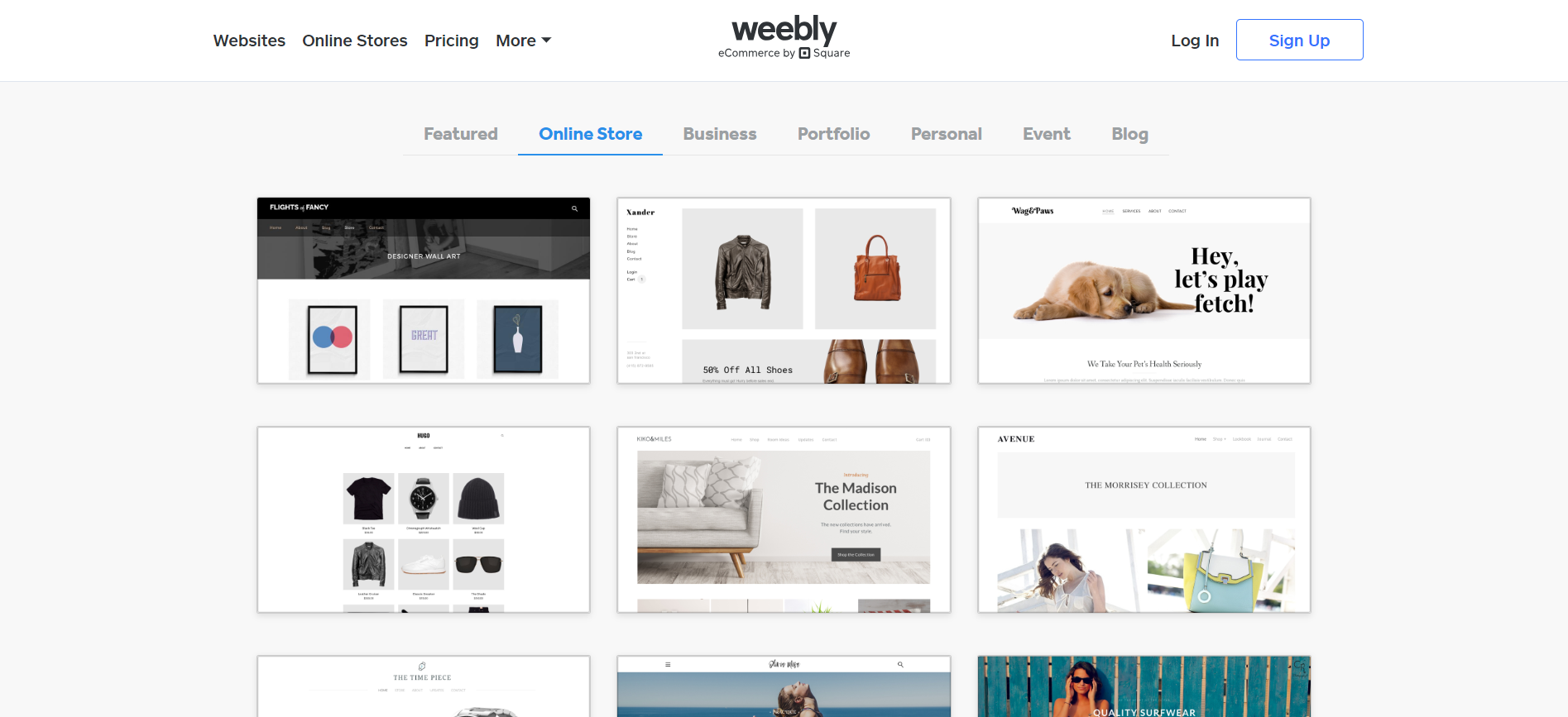

On the other hand, Webnode offers a variety of website templates designed for different purposes, from business and portfolios to restaurants and travel. These templates are customizable and responsive, ensuring they display well on any device. While an exact number isn’t available, Webnode provides a wide selection to cater to diverse website needs.
Get a head start on website creation with AI
Create a custom website tailored to your business needs 10X faster with 10Web AI Website Builder!
Ease of use
Ease of useReflects the platform’s overall user-friendliness.Score
Components:
- Learning curve (40%): Quickness and ease of getting started.
- Interface design (30%): Simplicity and intuitiveness of layout.
- User guidance (20%): Quality of tutorials and support.
- Flexibility (10%): Adaptability to various user skills.
 8.1
8.1
 8.0
8.0
🏆 Winner: Weebly
. Scoring 8.1, Weebly edges out Webnode, which scored 8.0, in terms of ease of use. Weebly’s drag-and-drop interface, WYSIWYG editing, mobile-friendly templates, and wide template selection make it a user-friendly choice for both beginners and experienced users. Webnode, while also user-friendly, may limit customization options for those seeking more specific design visions.
Learning Resources
🏆 Winner: Weebly
. Weebly’s learning resources, including the Help Center, blog, video tutorials, webinars, and community forum, provide valuable guidance for users. Webnode also offers a variety of learning resources, but lacks a large community of users across various platforms.
For ecommerce
EcommerceMeasures the platform’s effectiveness in supporting online business activities.Score Components:
- Ecommerce themes and templates (20%): Variety and design of templates.
- Product management (25%): Ease of managing and organizing products.
- Payment options (25%): Variety and convenience of payment methods.
- Ecommerce features (20%): Features for managing an ecommerce store.
- Integration (10%): Compatibility with external e-commerce tools and services.
 7.1
7.1
 6.3
6.3
Weebly and Webnode both offer ecommerce capabilities, but they cater to different needs. Weebly’s ecommerce solution is user-friendly with features like unlimited product listings, secure checkout, customizable shipping options, and discount promotions. However, it has limitations such as less design flexibility in templates and certain advanced features being available only with paid plans. On the other hand, Webnode’s ecommerce features include an online store builder, product management tools, various payment options, and basic analytics. However, its customization options are limited compared to other platforms, and transaction fees could impact profitability.

|

|
|
|---|---|---|
|
Ecommerce themes and templates |
6.5 |
6.5 |
|
Product page customization |
6.8 |
7.0 |
|
Payment processing and commissions |
7.0 |
6.8 |
|
POS capabilities |
6.0 |
4.0 |
|
Payment gateways |
7.5 |
7.0 |
|
Product numbers |
7.0 |
5.5 |
|
Additional ecommerce features |
6.7 |
6.0 |
Weebly ecommerce features:
- Unlimited products
- Inventory management
- Product reviews and ratings (Paid plans)
- Secure checkout
- Shipping options
- Abandoned cart recovery (Paid plans)
- Basic analytics
- SEO tools
- Marketing integrations (Paid plans)
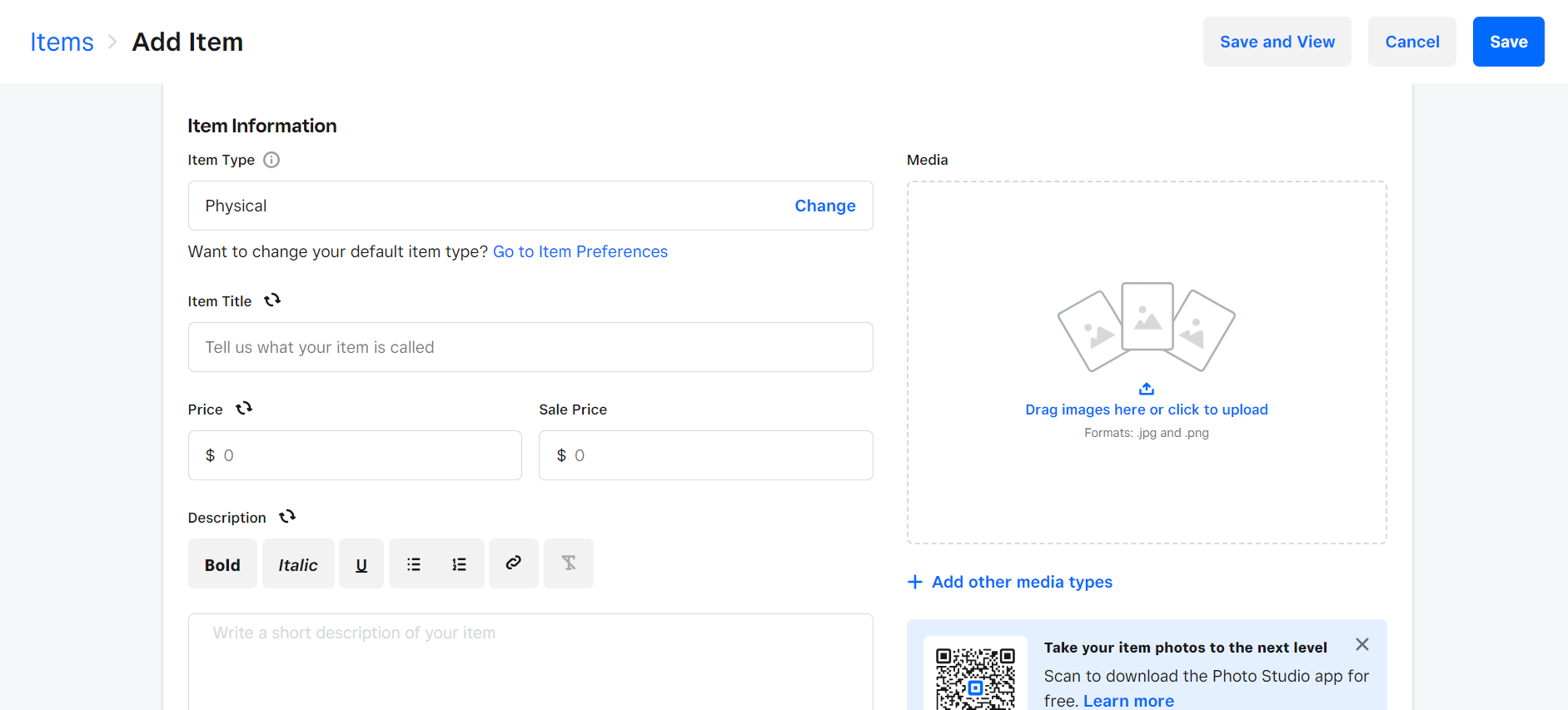
Webnode ecommerce features:
- Shipping options
- Payment gateway integrations
- Order management
- Coupons and discounts
Ecommerce themes & templates
Weebly provides ecommerce-specific themes with a decent range of styles, offering built-in features like product galleries and optimized checkout flows. While customization options include adjustments to colors and fonts, limitations exist compared to dedicated platforms, with a smaller theme selection and less design flexibility. Webnode offers ecommerce-specific templates designed for creating online stores, though the exact number of templates available may vary over time. These templates typically come with features such as product showcasing, shopping cart functionality, support for various payment gateways, and customization options.
Product page customization
Weebly allows a decent level of product page customization through its user-friendly interface, offering options for layout, colors, fonts, backgrounds, and content. Advanced customization, including custom CSS and app integrations, is available with paid plans, but limitations exist in design flexibility compared to dedicated platforms. Webnode provides users with extensive customization options for product pages, allowing for the creation of visually appealing and informative displays. Through customizable content blocks, product images and galleries, and tailored product descriptions, users can effectively showcase their products.
Payment processing
When it comes to payment processing, Weebly seamlessly integrates with popular payment processors such as Square, Stripe, PayPal, and others, enabling secure and convenient online transactions for your store. Users can choose their preferred gateway, set up payment processing within Weebly’s settings, and benefit from features like secure checkout and, on paid plans, options for recurring payments and international transactions. Webnode supports various payment gateways, including popular options like PayPal and Stripe, for online transactions. While Webnode itself doesn’t charge commissions on transactions, payment gateways may have their own fee structures. Webnode primarily focuses on facilitating online transactions and doesn’t provide native POS capabilities, although integration with third-party POS solutions may be possible.
Website Editors
Website EditorsEvaluates the platforms’ website building and editing capabilities.Score Components:
- Customization tools (40%): Range and power of editing features.
- Editor usability (30%): User experience within the editor.
- Design flexibility (20%): Freedom in layout and design changes.
- Update and maintenance ease (10%): Simplicity of updating and maintaining the site.
 7.6
7.6
 7.3
7.3
🏆
Winner: Weebly
. Weebly, with a score of 7.6, stands out for its drag-and-drop simplicity, catering to beginners with an intuitive interface and visual editing. The editor features a range of pre-designed templates, customization options, and content management tools, making it accessible for users without coding knowledge. While offering ease of use, it has some limitations in design flexibility and advanced features, with certain functionalities requiring a move to paid plans.
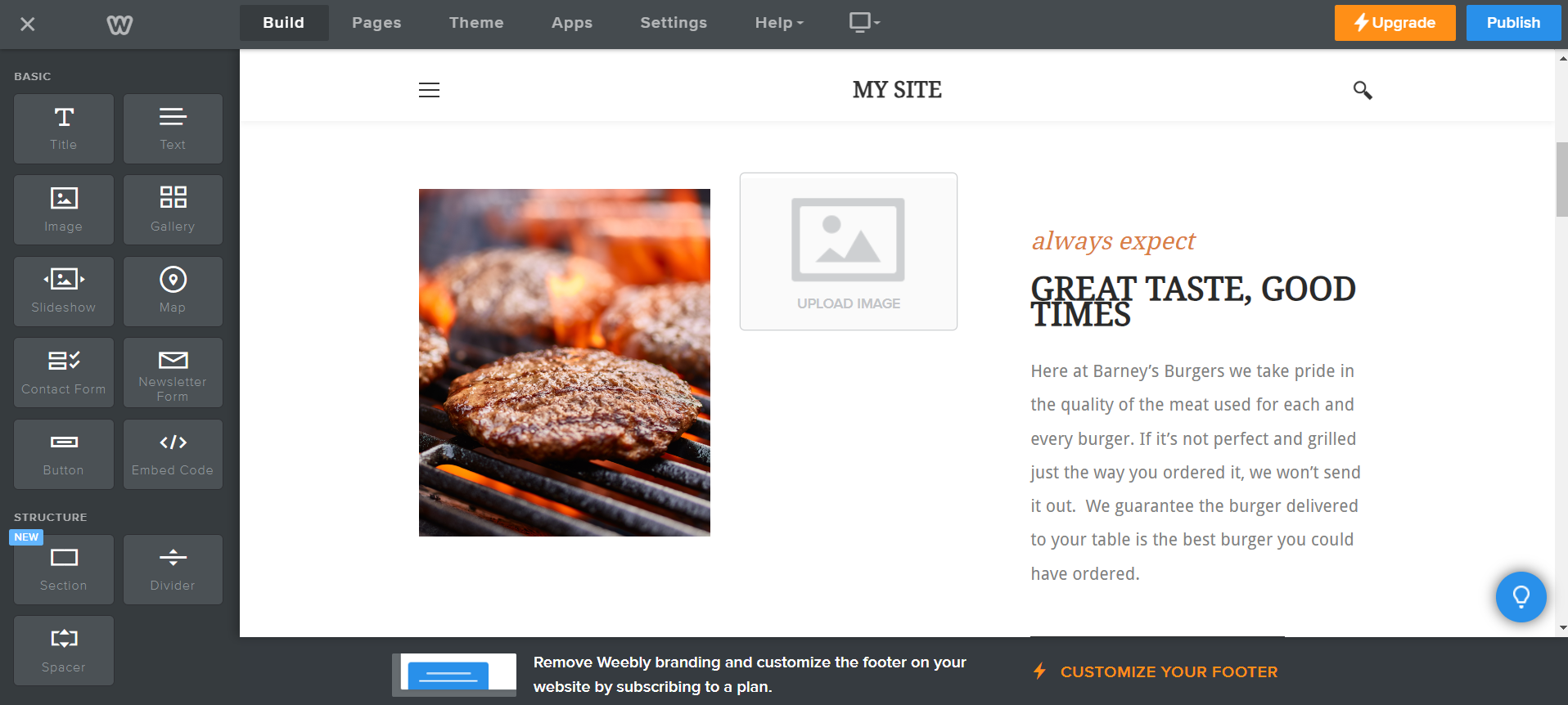
Webnode’s editor, scoring 7.3, features a user-friendly drag-and-drop interface with customizable templates, enabling users to easily create professional-looking websites without coding skills. The editor offers responsive design capabilities and multilingual support, catering to diverse audiences across different devices and languages. Built-in features such as SEO tools, e-commerce functionality, and analytics integration empower users to optimize their websites for search engines, sell products online, and track performance metrics effectively.
Mobile editor/app
 8.1
8.1
 5.5
5.5
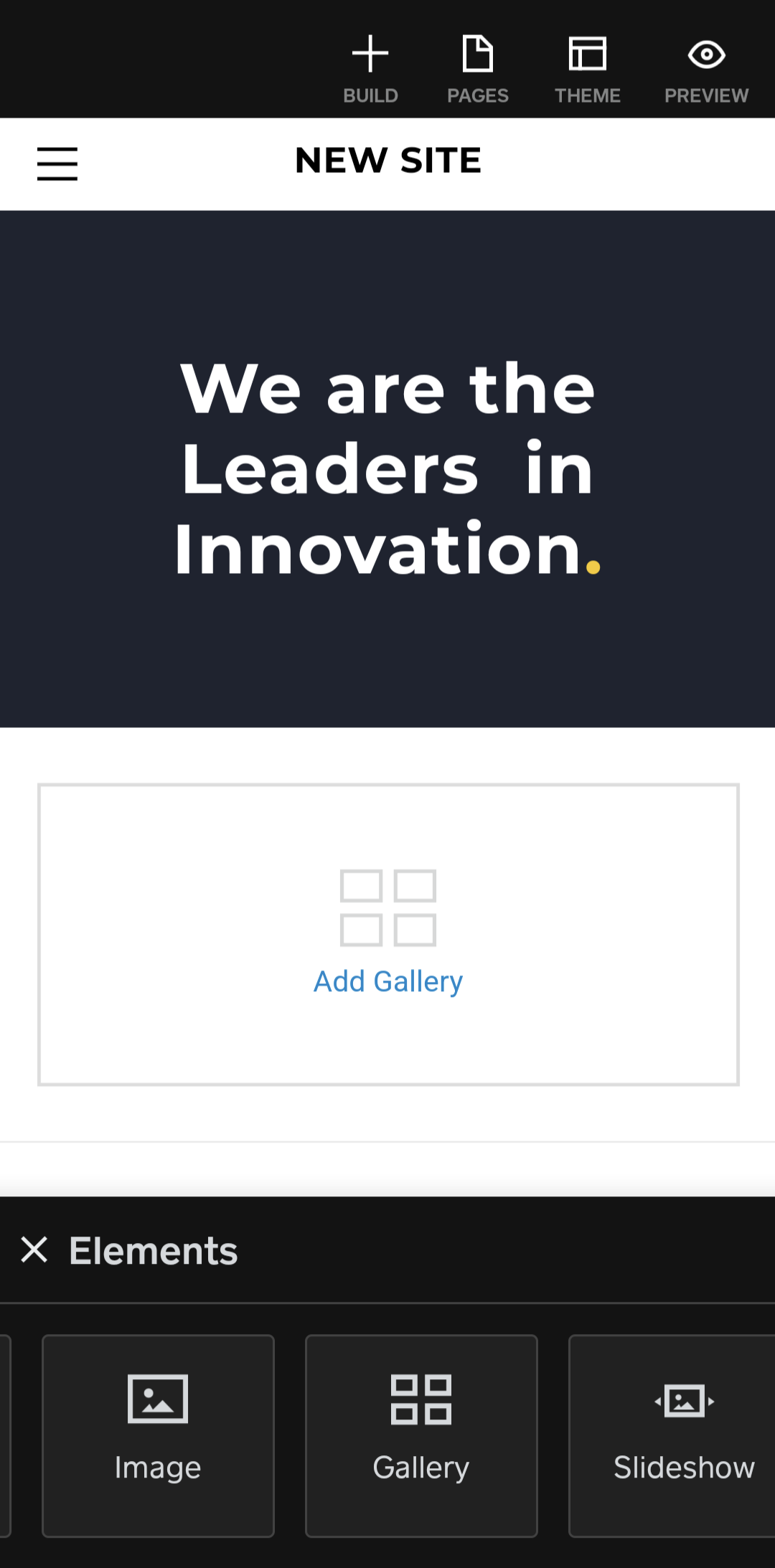

🏆
Winner: Weebly
. Both Weebly and Webnode offer mobile editing capabilities, but they cater to different needs and skill levels. Weebly has a dedicated mobile app that allows users to manage and make basic edits to their websites on the go. While it offers features like content management and basic design customization, it has limitations, such as no advanced editing capabilities or extensive design flexibility, making it best suited for quick content updates rather than major design changes.
On the other hand, Webnode does not have a dedicated mobile editor app. Users can edit their website using the mobile browser version of the editor, but this comes with certain limitations. Therefore, Weebly receives a higher rating due to its dedicated mobile app and the convenience it offers for on-the-go editing.
Product testing options
Product Testing OptionsAssesses the options for trying out platform features before commitment.Score Components:
- Trial quality (40%): Extent and usefulness of the trial or free version.
- Feature accessibility (30%): How many features are available to test.
- Trial duration (20%): Length of the trial period.
- Ease of transition (10%): Smoothness of moving from trial to paid plans.
 8.3
8.3
 5.3
5.3
Overall Result
:
Weebly Wins
. Weebly scores 8.3 in product testing options, significantly higher than Webnode’s 5.3. Weebly offers a free version and a 30-day money-back guarantee for all paid plans, allowing users to explore all features and make a decision within the refund window. Webnode also offers a free version, but it lacks a trial version and only some features can be tested with the free plan.

|

|
|
|---|---|---|
|
Free Plan |
Yes | Yes |
|
Trial Duration |
No (30-day money back guarantee) | No |
|
Testing Premium Features |
Yes, within 30-day refund window |
Limited, with free plan |
Price
PriceLooks at the cost-effectiveness and value for money of each platform.Score Components:
- Plan value (40%): What each pricing tier offers.
- Transparency and clarity (30%): Clearness of pricing structures.
- Flexibility of plans (20%): Range of options to suit different budgets.
- Hidden costs (10%): Additional expenses not included in the plan.
 8.4
8.4
 7.7
7.7
Weebly and Webnode both offer a range of pricing options, with Weebly generally scoring higher in terms of value for money.

|

|
|
|---|---|---|
|
Free |
Free ($0/month): Basic template selection, 500MB storage, Weebly ads, limited features. |
No offering at this amount. |
|
$0-$10 |
Personal ($6/month): Custom domain, unlimited storage, ad-free, limited SEO and email marketing tools. Value for price: 6.5 |
LIMITED ($5.50/month): Basic plan, 200 MB storage, attach domain, website statistics, up to 5 form fields, last 30 days backup. This plan allows to manage 1 website with unlimited number of pages. Value for price: 3.0 |
|
$10-$15 |
Professional ($12/month): Advanced design options, blog membership features, advanced SEO tools, form analytics. Value for price: 7.5 |
MINI ($10.00/month): All essentials for a simple website, 1 GB storage, 3 GB bandwidth, website statistics, 1 email account. This plan allows to manage 1 website with unlimited number of pages. Value for price: 4.5 |
|
$15-$20 |
No offering at this amount. |
STANDARD ($16.90/month): For starting an online store, 3 GB storage, 10 GB bandwidth, 20 email accounts, basic store features. This plan allows to manage 1 website with unlimited number of pages. Value for price: 6.0 |
|
$20-$30 |
Performance ($26/month): Advanced ecommerce features, lead capture tools, custom code injection, marketing automation. Value for price: 8.5 |
PROFI ($26.50/month): Professional websites, 7 GB storage, unlimited bandwidth, 100 email accounts, full online store capabilities. This plan allows to manage 1 website with unlimited number of pages. Value for price: 7.5 |
|
$30+ |
No offering at this amount. |
BUSINESS ($34.90/month): Comprehensive e-commerce, 15 GB storage, unlimited bandwidth, 1000 email accounts, advanced online store features. This plan allows to manage 1 website with unlimited number of pages. Value for Price: 8.5 |
location. As a result in rare cases the prices displayed here can differ from the ones you see on their
websites.
Hosting quality
Hosting
qualityExamines the reliability and performance of the hosting solutions.Score Components:
- Uptime (40%): Consistency and reliability of website availability.
- Speed (30%): Loading times and performance.
- Bandwidth and storage (20%): Sufficiency of resources provided.
- Data centers (10%): Quality and distribution of hosting infrastructure.
 7.7
7.7
 6.3
6.3
Winner: Weebly
. Weebly offers a more comprehensive hosting service, with unlimited storage and bandwidth on its paid plans, a 99.9% uptime, and a 99.95% uptime guarantee. Although Weebly does not disclose the specific locations of its data centers, it leverages a global network to deliver reliable and efficient hosting. On the other hand, Webnode offers hosting with from 1GB to unlimited bandwidth and automated backups on higher plans, but it does not disclose its hosting type or the locations of its data centers, and it does not offer an uptime guarantee.

|

|
|
|---|---|---|
|
Do they offer hosting? |
Yes, included in all paid plans |
Yes, included in all paid plans |
|
Data Centers: |
Not publicly disclosed due to security and technical reasons |
Not disclosed |
|
Type of hosting: |
Shared Hosting, Cloud Based Hosting, Managed Hosting |
Not disclosed |
|
Uptime: |
99.9% |
99.6% |
|
Uptime Guarantee: |
Yes, 99.95% |
No |
Website Speed Optimization
Website Speed OptimizationEvaluates optimization of website loading timesScore Components:
- PageSpeed Score (30%): Google’s score indicating performance optimization.
- Loading Time (30%): The average time until a website is fully interactive.
- Mobile Optimization (15%): Optimization effectiveness for mobile devices.
- Resource Optimization (15%): Optimizing images, scripts, and other heavy resources.
- CDN Usage (10%): Use of CDN to enhance speed across geolocations.
 7.9
7.9
 6.1
6.1
🏆 Winner: Weebly
Both Weebly and Webnode have strategies in place for website speed optimization, but Weebly takes the lead with its comprehensive approach and transparency about its Core Web Vitals improvements.

|

|
|
|---|---|---|
|
Focus |
Load balancing, CDN |
Code Minification, Image Optimization, Caching |
|
Performance Tools |
Google Lighthouse, PageSpeed Insights |
Google PageSpeed Insights |
|
Key Strategies |
Load balancing, CDN |
Code Minification, Image Optimization, Caching |
|
Load Times |
2s to 4s |
Varies depending on optimization |
|
Page Speed Scores Range |
Average 80+/100 |
Varies depending on optimization |
|
Core Web Vitals Improvement |
Significant enhancements |
No information provided |
Weebly has a comprehensive approach to website speed optimization, focusing on load balancing and CDN. It has significantly enhanced its Core Web Vitals performance by implementing measures such as automatic image optimization, lazy loading for content, code minification, and caching. These improvements, along with streamlined JavaScript usage and an enhanced server infrastructure, aim to boost website loading speed and responsiveness. Weebly’s load times range from 2s to 4s, and its PageSpeed scores average 80+/100.
On the other hand, Webnode’s strategies for speed optimization include code minification, image optimization, and caching. However, it does not provide any information on their Core Web Vitals improvements. The load times and PageSpeed scores vary depending on optimization.
Get a head start on website creation with AI
Create a custom website tailored to your business needs 10X faster with 10Web AI Website Builder!
Plugins and integrations
Plugins and integrationsMeasures the range and effectiveness of additional plugins and integrations.Score Components:
- Variety of options (40%): Range of available add-ons.
- Integration smoothness (30%): Ease of integrating plugins into the site.
- Quality of plugins (20%): Functionality and reliability of the options.
- Custom integration capabilities (10%): Support for custom or third-party integrations.
 7.5
7.5
 6.8
6.8
🏆 Winner: Weebly.
With a score of 7.5, Weebly offers a more comprehensive range of plugins and integrations than Webnode, which scores 6.8. Weebly’s App Center and API access for higher-tier plans provide users with a wide array of options to enhance their websites. Webnode, on the other hand, relies on Elfsight for its plugins, which although diverse, may not offer the same level of customization and functionality as Weebly’s offerings.
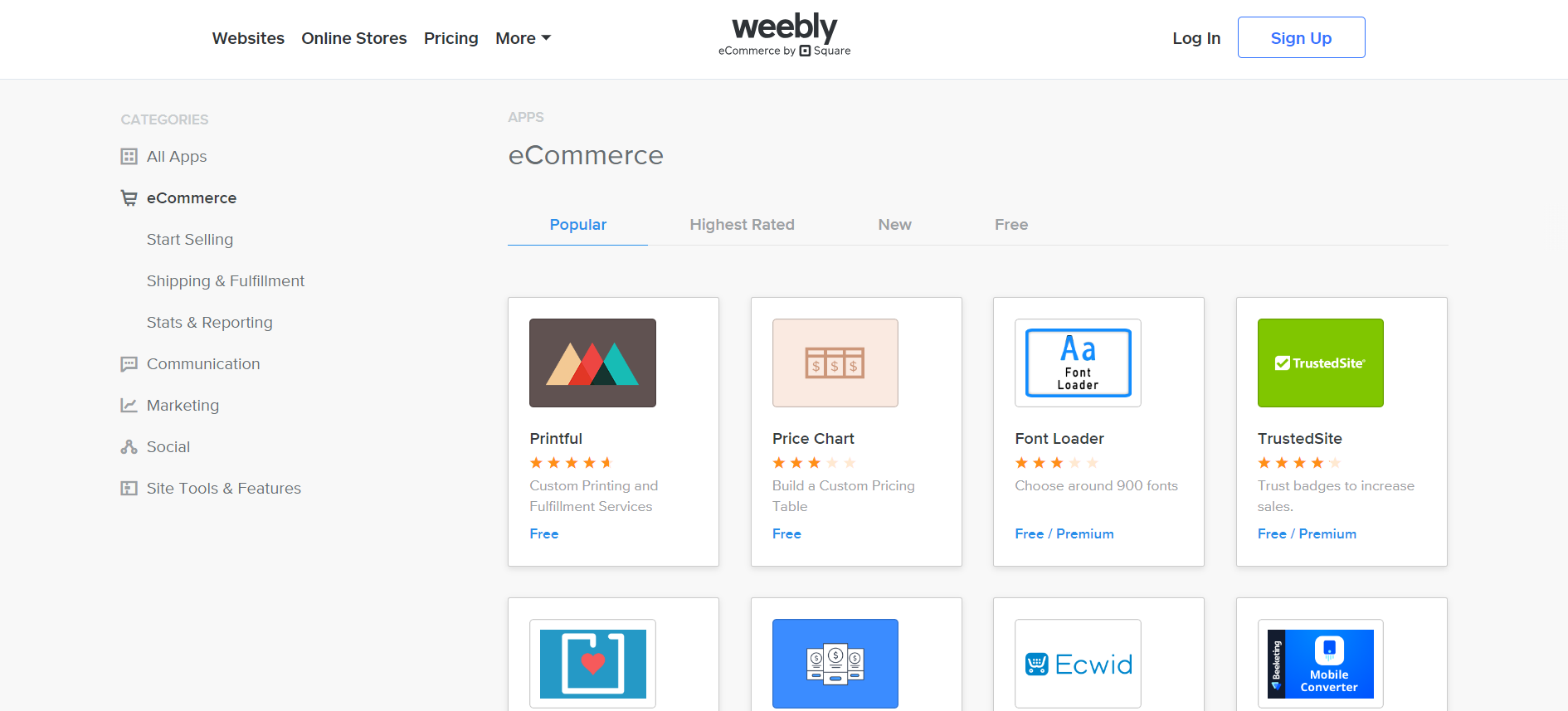

Marketing Features
Design FunctionalitiesRepresents how well each platform allows for creative design and customization of websites.Score Components:
- Template Variety (30%): Range and quality of design templates.
- Customization (30%): Flexibility and options for design alterations.
- User Interface (20%): Ease and intuitiveness of the design process.
- Responsiveness (10%): Adaptability to different devices and screen sizes.
- Innovation (10%): Unique design features and tools.
 7.1
7.1
 5.5
5.5
🏆
Overall Winner: Weebly
. Weebly stands out for its more advanced marketing tools, especially in SEO, blogging, and analytics. Webnode, while offering a range of marketing features, lacks in-depth capabilities in these areas.

|

|
|
|---|---|---|
|
SEO Tools |
|
|
|
Email Marketing |
|
|
|
Blogging |
|
|
|
Social Media Integration |
Easy link to social media accounts and share buttons |
Yes, through third party integration |
|
Analytics and Reporting |
Built-in analytics for tracking site performance |
Yes |
|
Ads and Promotions |
Integrated marketing tools for creating and managing ads |
Yes |
Customer Support
Customer supportEvaluates the quality and availability of support options.Score Components:
- Response time (40%): Speed of support responses.
- Support quality (30%): Effectiveness and helpfulness of the support.
- Availability (20%): Range of support channels (phone, chat, email).
- Resource richness (10%): Quality of self-help and educational materials.
 7.3
7.3
 5.3
5.3
🏆 Winner: Weebly
. In the Weebly vs Webnode comparison, Weebly takes the lead with a customer support score of 7.3. Weebly offers a variety of support options, including an extensive Online Help Center, Community Forum, Email Support, Live Chat during limited hours, and Phone Support for Pro and Business plan users. The 24/7 accessibility of the Online Help Center and Community Forum ensures users can find assistance at any time.
Webnode, with a customer support score of 5.3, provides support in more than 20 languages and aims to resolve inquiries within 24 hours. However, its support is primarily through email, available only on weekdays, and lacks general phone and live chat support. Premium customers do receive priority phone support, but this is not as comprehensive as Weebly’s offerings. Overall, Weebly’s more robust and accessible support options make it the better choice for users seeking reliable customer assistance.
Security
SecurityLooks at the platforms’ security measures and data protection.Score Components:
- Data protection (40%): Safeguards for user and customer data.
- SSL and encryption (30%): Implementation of secure connections.
- Compliance (20%): Adherence to industry security standards.
- Regular updates (10%): Frequency of security updates and patches.
 8.3
8.3
 7.7
7.7
🏆
Winner: Weebly
. Weebly takes the lead in security with a score of 8.3, compared to Webnode’s 7.7. Weebly’s security measures include secure data centers, routine system updates, encryption through SSL certificates, compliance with PCI standards for secure transactions, automatic malware scans, spam prevention measures, robust password protection, optional two-factor authentication, and user permission controls. These measures collectively ensure a secure and reliable environment for individuals and businesses utilizing Weebly for website creation.
Webnode, on the other hand, offers a variety of security measures for websites, including a Premium Site Security add-on with IP Filters, Form Protection, and Malware Scanning for users with a Premium Plan. All Webnode sites are automatically secured with HTTPS, ensuring safe browsing for visitors. Additionally, the platform supports GDPR compliance through consent fields in forms and a cookie consent bar, alongside offering restricted access to pages through membership registration. Despite these features, Webnode falls slightly short in comparison to Weebly’s comprehensive security measures.
AI Capabilities
AI capabilitiesMeasures the effectiveness of AI-driven features and tools.Score Components:
- Automation efficiency (40%): Impact of AI on streamlining processes.
- Personalization (30%): AI-driven customization for users or customers.
- AI-Assisted design (20%): Role of AI in website design and functionality.
- Data analysis (10%): Use of AI in interpreting user data and analytics.
 1.8
1.8
 5.3
5.3

|

|
|
|---|---|---|
|
AI Builder |
|
Webnode AI builder streamlines the website creation process |
|
AI Ecommerce features |
|
|
|
AI Content Generation |
Third-party tools can be integrated for AI content creation |
|
|
Additional AI features |
Third-party AI-powered plugins can be integrated |
|
🏆 Winner: Webnode
. Webnode, with a score of 5.3, offers an AI builder that simplifies the website creation process, making it more accessible and efficient for users regardless of their technical expertise.
Weebly, scoring 1.8, does not have any native AI capabilities. However, it allows the integration of third-party AI-powered plugins for content creation and other features.
User Management
User ManagementAssesses the platforms’ capabilities in managing user roles, permissions, and accessibility.Score Components:
- Role Customization (40%): Flexibility in creating and defining user roles and
permissions. - Ease of Management (30%): User interface and tools for managing users.
- Access Control (20%): Effectiveness of access control measures for different user
levels. - Scalability (10%): Ability to manage a growing number of users efficiently.
 6.5
6.5
 6.9
6.9
🏆 Winner: Webnode
. Both Weebly and Webnode offer varying levels of user management depending on the plan selected. However, Webnode edges out slightly with a higher user management score.
- Weebly’s Free Plan allows only one user, suitable for personal or simple projects, while the Personal Plan accommodates two users, making it appropriate for small businesses or collaborative efforts. The Professional Plan permits up to 10 users, catering to growing businesses or teams with specific roles, and the Business Plan offers unlimited user access.
- Webnode allows multiple users to manage and edit a website, but the exact number vary depending on the subscription plan you choose. Generally, the free version of Webnode provides limited user access for management and editing, while premium plans offer more flexibility, including the ability to add multiple users with different roles and permissions.
Weebly User Roles and Access Levels:
| Role | Description | Access Highlights |
|---|---|---|
| Owner | The primary account holder and creator of the Weebly site. | Full access to all site features, including design, pages, settings, store management, and analytics. |
| Admin | Users granted significant control over the site by the Owner. | Can edit and publish site content, manage store orders, view analytics, and access most site settings, except for site ownership transfer and account deletion. |
| Author | Users with limited permissions, typically focused on content creation. | Can create and edit blog posts, manage comments, and sometimes edit specific pages if granted permission. |
| Store Manager | Specifically focused on e-commerce aspects of the site. | Access to manage and fulfill orders, view store analytics, and edit product details, but cannot change site design or settings. |
Webnode User Roles and Access Levels:
| Role | Description | Access Highlights |
|---|---|---|
| Website Owner | The individual or entity that owns the Webnode website. | Full access: can modify site structure, design, content, and manage user roles. |
| Administrator | Users with administrative privileges assigned by the website owner. | Nearly full access, including content management, and some settings adjustments. |
| Editor | Users tasked with creating, editing, and publishing content. | Access to add and edit content, blog posts, and pages, but cannot alter design. |
| Contributor | Users who can contribute content but cannot publish it. | Can draft content but need approval from an Editor or Administrator to publish. |
| Viewer/Visitor | Individuals who visit the website without any editing permissions. | Can view the public website and interact through comments or contact forms. |
| E-commerce Manager | Specifically for websites with an e-commerce component, managing products. | Can add, edit, and manage products, orders, and customer interactions. |
Additional Features

|

|
|
|---|---|---|
|
SSL Certificate |
|
|
|
Custom Domain |
|
|
|
Free Custom Domain Included |
|
|
|
International Domains |
|
|
|
Mobile Responsive |
|
|
|
Page Speed |
|
|
|
Website Builder Mobile App |
|
|
|
Convert a Website To An App |
|
|
|
Website Analytics |
|
|
|
Multilingual Sites |
|
|
|
Multiple Users |
|
|
User Feedback
Square Online (formerly Weebly) receives positive reviews for its user-friendly drag-and-drop interface and quick website development features, making it suitable for small businesses. Users highlight its role in efficient appointment booking, saving time in coordination and scheduling. However, some express a desire for more advanced building tools and better pricing. The platform is recognized for streamlining website and payment operations, though opinions on customer service and design limitations are mixed. Overall, it is considered a good, affordable solution for small businesses.
User feedback on Webnode highlights its ease of use, rapid website creation capabilities, and the wide range of templates available, making it a popular choice for individuals and businesses seeking an intuitive web development platform. While praised for its user-friendly interface and quick setup, including domain purchase and application, some users express a desire for more flexibility and customization options, especially in themes and e-commerce features. Comparatively, it falls short on advanced functionalities such as SEO tools and widgets offered by competitors like WordPress. Customer service experiences vary, with some users facing challenges in getting support for email hosting and analytics integration. Overall, Webnode is celebrated for its ability to accommodate users with little to no coding knowledge, offering an accessible solution for creating professional websites, though it may not fully meet the needs of those requiring more complex site features or dedicated customer support.
The making of this blog
We followed a clear, step-by-step process to write and research this article.
FAQ
Which platform is better for ecommerce, Weebly or Webnode?
Can I use both Weebly and Webnode for creating a blog or informational website?
How do Weebly and Webnode compare in terms of ease of use?
What are the major differences in pricing between Weebly and Webnode?
Which platform offers better customer support, Weebly or Webnode?
How do Weebly and Webnode fare in terms of website speed and optimization?
Which platform is more secure, Weebly or Webnode?
Do Weebly and Webnode offer AI capabilities?
Can I manage multiple users on both Weebly and Webnode?
What additional features do Weebly and Webnode provide?










